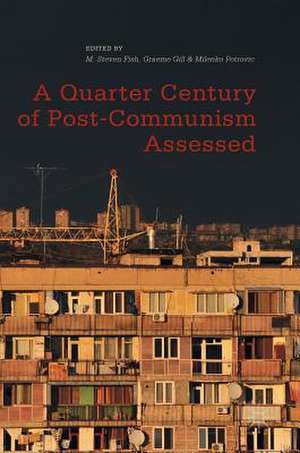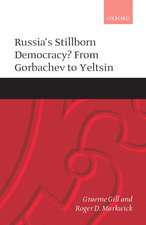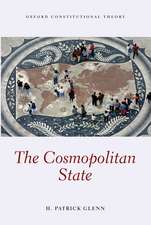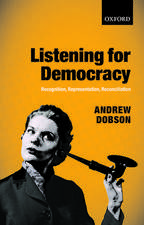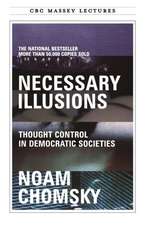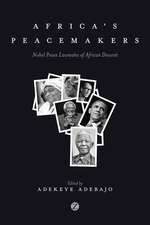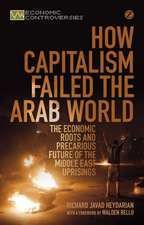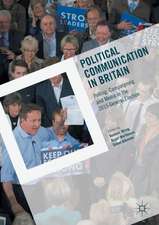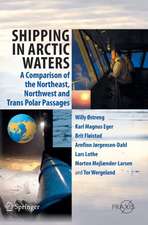A Quarter Century of Post-Communism Assessed
Editat de M. Steven Fish, Graeme Gill, Milenko Petrovicen Limba Engleză Hardback – 20 feb 2017
| Toate formatele și edițiile | Preț | Express |
|---|---|---|
| Paperback (1) | 784.79 lei 6-8 săpt. | |
| Springer International Publishing – 13 iul 2018 | 784.79 lei 6-8 săpt. | |
| Hardback (1) | 732.84 lei 6-8 săpt. | |
| Springer International Publishing – 20 feb 2017 | 732.84 lei 6-8 săpt. |
Preț: 732.84 lei
Preț vechi: 893.71 lei
-18% Nou
Puncte Express: 1099
Preț estimativ în valută:
140.23€ • 146.82$ • 116.31£
140.23€ • 146.82$ • 116.31£
Carte tipărită la comandă
Livrare economică 09-23 aprilie
Preluare comenzi: 021 569.72.76
Specificații
ISBN-13: 9783319434360
ISBN-10: 3319434365
Pagini: 320
Ilustrații: XII, 360 p. 12 illus.
Dimensiuni: 148 x 210 x 22 mm
Greutate: 0.59 kg
Ediția:1st ed. 2017
Editura: Springer International Publishing
Colecția Palgrave Macmillan
Locul publicării:Cham, Switzerland
ISBN-10: 3319434365
Pagini: 320
Ilustrații: XII, 360 p. 12 illus.
Dimensiuni: 148 x 210 x 22 mm
Greutate: 0.59 kg
Ediția:1st ed. 2017
Editura: Springer International Publishing
Colecția Palgrave Macmillan
Locul publicării:Cham, Switzerland
Cuprins
Introduction: Steven Fish, Graeme Gill, Milenko Petrovic.- Chapter 1. A Quarter-Century of Postcommunism: what have we learnt about democracy, social change and economic reform?.- Chapter 2: Postcommunist Transition under the Umbrella of Uneven EUropeanisation: East Central Europe, the Baltic States and the Balkans.- Chapter 3. Trajectories of Political Development in the Post-Soviet States.- Chapter 4. Postcommunist Corruption: does EU membership make any difference?.- Chapter 5: The V4 Countries and the EU: a comparative perspective.- Chapter 6: China and European Postcommunist Integration: the CEEC Countries and the “16+1” Platform.- Chapter 7: Illiberal Democracy and the Anti-Democratic Backlash: Hungary – a new model in the making?.- Chapter 8. The Shaky Postcommunist Transition in the Western Balkans: Serb-Croat relations and the Kosovo issue.- Chapter 9: Old Paradigms of Ethnicity and Post-Soviet Transition in the Baltic States. Chapter 10: Ukraine’s democratization Path Post-Orange Revolution: the internal and external impediments to democratic reform.- Chapter 11. Personalism Rampant: Russian policy-making on Ukraine and the December 2014 economic crisis.- Chapter 12: Post-Communist Russia and the West: from Crisis to Crisis. Chapter 13: Kazakhstan and the Eurasian Economic Union: the dilemmas of alliance-making in the post-Soviet period.
Notă biografică
M. Steven Fish is Professor of Political Science at the University of California-Berkeley. He has published six authored or co-authored books and numerous journal articles and book chapters on democracy and regime change in developing and post-communist countries, religion and politics, and constitutional systems and national legislatures. His book Are Muslims Distinctive? A Look at the Evidence (Oxford, 2011) was selected for Choice's Outstanding Academic Titles, 2012: Top 25 Books.
Graeme Gill is Professor Emeritus of Government and Public Administration at the University of Sydney and a Fellow of the Academy of Social Sciences in Australia. He has been President of the International Council for Central and East European Studies (ICCEES) since 2010 and has been a visiting fellow at several universities abroad. In addition to several co-authored and edited volumes, he has published twelve authored books on various aspects of Soviet and Russian politics.
Dr Milenko Petrovic, is Senior Lecturer Above the Bar at the National Centre for Research on Europe and at the Department of Global, Cultural and Language Studies, University of Canterbury, New Zealand. He is the author of The Democratic Transition of Post-Communist Europe – in the shadow of communist differences and an uneven Europeanisation (Palgrave Macmillan, 2013) and the author/co-editor of two other volumes and numerous journal articles and shorter contributions on comparative politics, post-communist transition and EU enlargement.
Graeme Gill is Professor Emeritus of Government and Public Administration at the University of Sydney and a Fellow of the Academy of Social Sciences in Australia. He has been President of the International Council for Central and East European Studies (ICCEES) since 2010 and has been a visiting fellow at several universities abroad. In addition to several co-authored and edited volumes, he has published twelve authored books on various aspects of Soviet and Russian politics.
Dr Milenko Petrovic, is Senior Lecturer Above the Bar at the National Centre for Research on Europe and at the Department of Global, Cultural and Language Studies, University of Canterbury, New Zealand. He is the author of The Democratic Transition of Post-Communist Europe – in the shadow of communist differences and an uneven Europeanisation (Palgrave Macmillan, 2013) and the author/co-editor of two other volumes and numerous journal articles and shorter contributions on comparative politics, post-communist transition and EU enlargement.
Textul de pe ultima copertă
This edited volume seeks to understand and explain the pattern of varying national and regional success in post-communist political and economic transition across the post-communist world. Despite widespread hopes for the development of vigorous democratic political systems and vibrant market economies, the outcomes of a quarter century of post-communist transition in the countries of the former communist bloc in Eurasia have been widely variant. Some have matched these hopes, including becoming full members of the EU; others have fallen far short, with political and economic systems little changed from the communist era. This collection, with an internationally respected list of contributors, addresses some of the pressing issues in political science and transition studies, ranging from theoretical overviews to the more specific nitty-gritty of contemporary politics.
Caracteristici
Offers a broad, comparative analysis with a clear focus on the particular aspects of the transition process, including institution building and foreign policy Presents work from an internationally respected list of contributors Speaks to undergraduate and postgraduate students as well as professional specialists in the area
